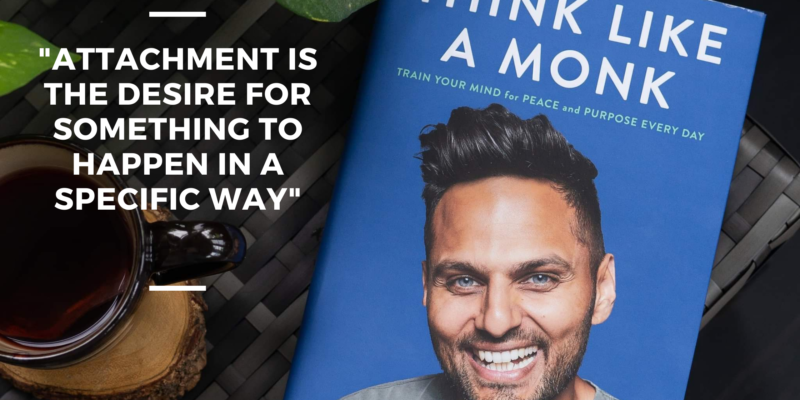About the Author
Jay Shetty is a host, viral content developer, motivational speaker, and author who has won numerous awards. Jay started his YouTube channel in 2016 with the goal of sharing wisdom videos. He now has over 20 million followers worldwide and has received over four billion views on YouTube in just four years. In addition, Jay was nominated to Forbes’ 30 Under 30 list.
When Jay was 18 years old, he met a monk who altered his life. Jay began to redefine success for himself, and he desired to help others. He spent three years as a monk travelling across India and Europe when he was 22 years old. Jay would devote half of his day to personal development and the other half to serving others. He has now reintegrated into society. He does, however, want to assist individuals in adapting the monastic mindset to modern city life.
Outline
The book Think Like a Monk combines ancient wisdom with Jay Shetty’s personal experiences. The goal of Think Like a Monk is to assist people in adopting a monk mindset in their daily life. Think Like a Monk teaches you how to overcome negative ideas, attain calm, and create meaningful purpose in order to realise your full potential. It can be difficult to apply monks’ lessons to modern life. Shetty, on the other hand, offers tips and exercises for reducing stress, improving self-discipline and attention, and maintaining relationships in today’s environment.
Form your identity by deliberately creating values
Detachment and attachment are two different things, according to Shetty. Attachment is the desire for something to happen in a specific way. When you want things to happen in the finest possible way, detachment occurs. The issue with attachment is that you believe you know what is best.
Because our values lead us in life, we need to be more deliberate about the ideals we follow. Shetty cites Heath Ledger as an example of a method actor. These performers would use method acting to become more immersed in the character they were portraying in a film. They’d begun to take on the persona of their character. Individuals who do not have deliberate values, according to Shetty, experience the same concept.
If you build your existence on tasks rather than your purpose, you will become disoriented when these efforts fail. When you choose purpose over tasks, you are not at the end of your previous path. Instead, you’re only getting started on who you’ll become.
Mistakes can be used as fuel to build protective shields
You must learn to promote a compassionate culture, particularly self-compassion and self-forgiveness. Taking this mindset instead of obsessing on unpleasant actions can have a big impact on your life. Instead of berating yourself for your errors, you should work on strengthening the muscles that will help you be more robust. If you correctly feed your resilience, you will be joyful no matter what life throws at you.
You should put your protection shield on. You should not enter life’s battleground without first completing your training and shielding.
Alignment should take precedence above achievement.
We can go down the wrong route by having the wrong intention for the right thing. Prioritize alignment over achievement, since alignment indicates that your goal and action are in sync. Being aligned entails seeking for the right thing at the right place at the right time. The power of positive intention is enormous. You can do the wrong thing with the best of intentions and yet get to your destination. Shetty illustrates his point with an analogy. Assume you’ve just planted some seeds and are now going to water them. The seeds will grow even if you mistakenly water both the seeds and the weed next to them. Later on, you’ll be able to see the weeds. To think like a monk, you must continue to water your seeds.
You should pause and consider why you are doing anything. Allowing external influences to determine your interior pleasure is not a good idea. Allowing external variables to determine your happiness means putting your happiness in the hands of someone else. You’re handing over control.
Review
This book offers an easy-to-follow guide to thinking like a monk: bold, compassionate, and determined; and why it isn’t a choice, but a need in our fast-paced, stressed-out, and disconnected world.In the end you will learn things like
- Every day, train your mind for serenity and purpose.
- Stop living your life based on other people’s opinions and start living your life on your own terms.
- Remove negativity from your life and break free from unhealthy relationships and habits.
- Heal the anxiety, fear, and pain you’ve had in the past.
- Discover your actual calling and passion.
- Create morning and evening rituals that will help you change your regular habits.
- Stop delaying and overthinking and instead train your mind to focus.
- Set aside your ego in order to pave the way to achievement.
- Develop a thankfulness practise that is more than just a list.
- True compatibility in relationships can be found and developed.
Ratings- 4.5/5













